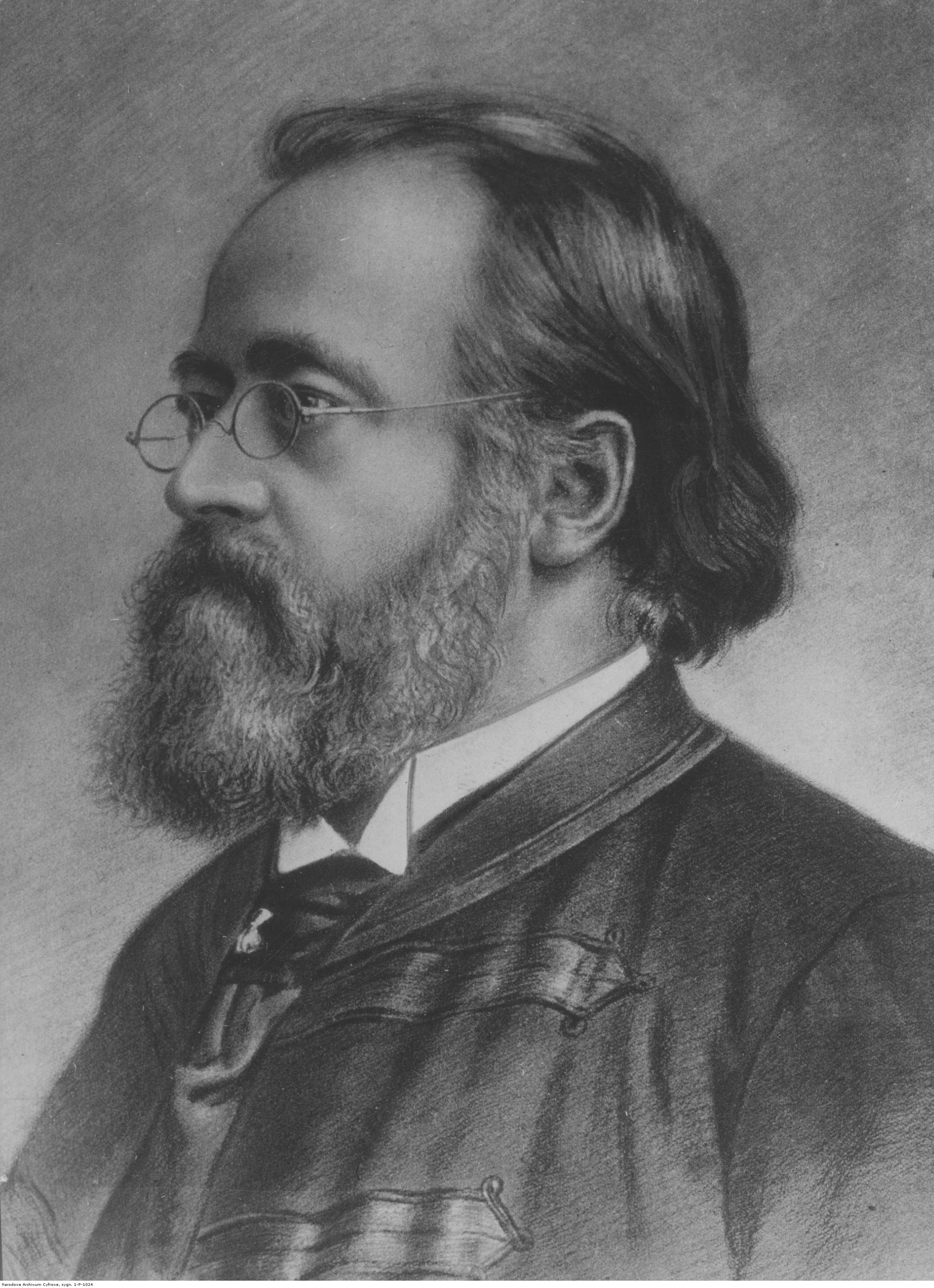He was born on 25 October 1843 in Lviv and attended secondary school in his hometown. Immediately after his baccalaureate in 1861, he began his activity as a journalist and published secret patriotic writings: Znicz [“Candle”] and Partyzant [“Partisan”] at the university. For that, he was arrested for 4 months. In 1862, he started studies at the Faculty of Law in Lviv, which he soon abandoned and enlisted in the insurgent unit led by Leon Czachowski during the January Uprising. In December 1864, he was arrested again and sentenced to two years’ imprisonment in the Olomouc Fortress. At the end of 1865, he returned to Lviv, where, after unsuccessfully trying to resume his law studies, he devoted himself to journalistic work and political activity. The latter involved the group focused around Franciszek Smolka. Shortly afterwards, he became one of the leaders of the National Democratic Society founded by Smolka. He published his numerous articles and brochures in many Galician journals, including the Tygodnik Naukowy i Literacki [“Scientific and Literary Weekly”], Dziennik Lwowski [“Lviv Daily”], Dziennik Polski [“Polish Daily”], Gazeta Literacka [“Literary Gazette”], and Nowiny [“News”]. In 1867, he founded the Gmina [Commune] magazine. The apex of Romanowicz’s journalistic career was his founding of the Nowa Reforma [“New Reform”] daily in 1882 together with Adam Asnyk and T. Rutkowski. In the final two decades of the 19th century, Romanowicz was elected five times as deputy to the Galician regional parliament. From 1889, he sat in the auxiliary body to the regional parliament, and in 1901 he achieved his greatest political success, becoming a member of the State Council in Vienna. He died on 29 May 1904. Most important works: O stowarzyszeniach [“On associations”] (1867), Środki podniesienia przemysłu w naszym kraju [“Measures to boost industry in our country”] (1873), Wiadomości statystyczne o mieście Lwowie [“Statistical report about the city of Lviv”] (1874), Sprawa polska i sprawa wschodnia [“The Polish question and eastern question”] (1876), Polityka stańczyków [“Politics of the Stańczyk Circle”] (1882), Dwie opinie [“Two opinions”] (1891), Stronnictwo krakowskie o styczniowym powstaniu [“Kraków school’s views on the January Uprising”] (1891).

